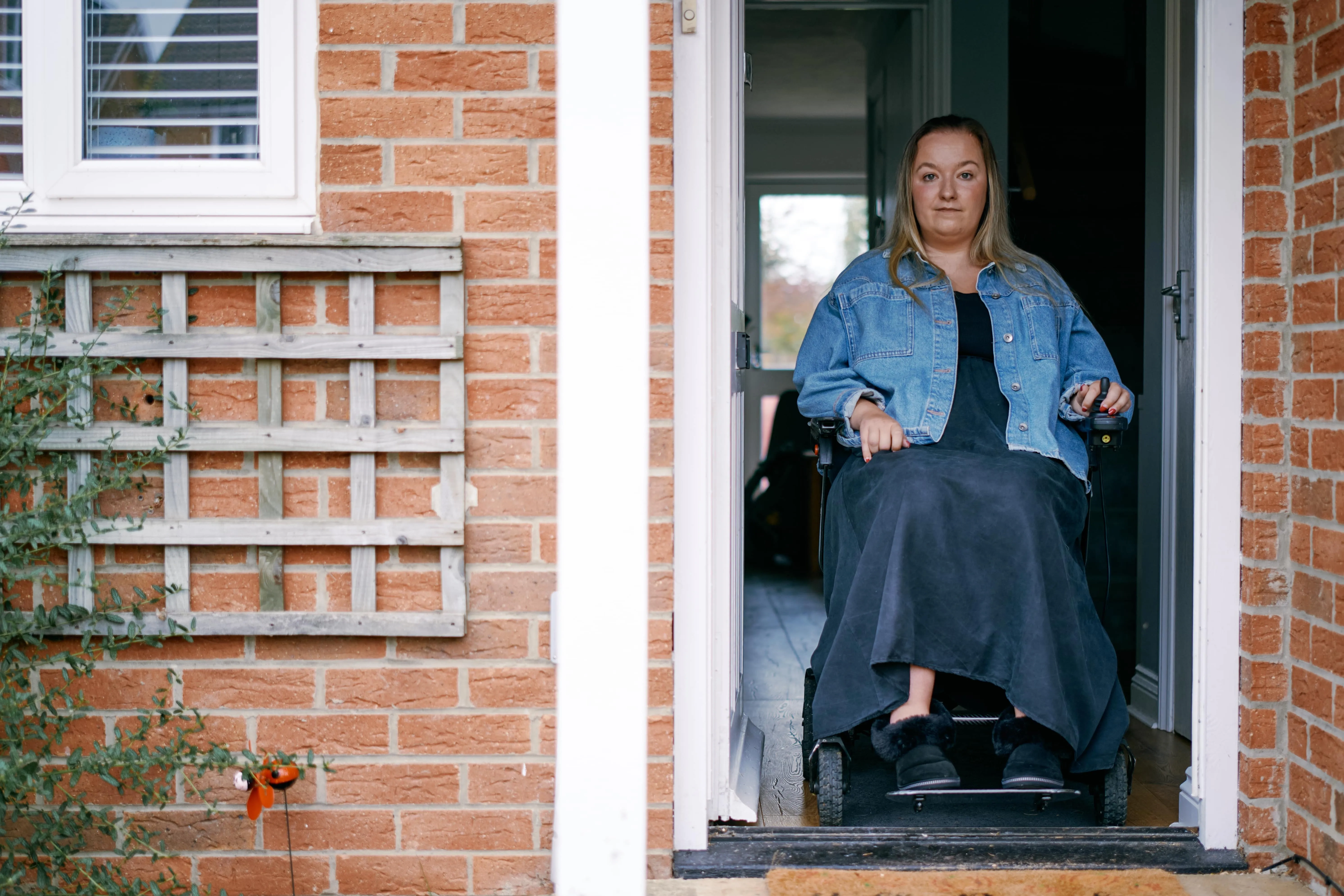24 November 2025 News
Today (24 November) we’re launching our new campaign demanding local councils Unlock The Door and act faster for people with MND who desperately need housing adaptations.
The Disabled Facilities Grant (DFG) scheme provides funding for adaptations like stairlifts, widening doors, ramps and more.
However, our research shows applying for a DFG is a complex and slow process, leading to unnecessary anxiety and pressure for people with MND, often in the final months of their life.
The report reveals the average time from submission of a DFG application for a large adaptation to completion of the works is 375 days in England, 357 days in Northern Ireland and 289 days in Wales.
With a third of people dying within a year of diagnosis, this is unacceptable. That's why we're calling on every council to commit to completing all approved large adaptations within four-and-a-half months.
Read a Lifeline Not a Luxury report here
Charlotte Cooke, 30, a mum from Thatcham, Berkshire, was diagnosed with MND six months after having her child.
She can no longer get to the bathroom or bedroom without support, and the challenges worsen every day as her mobility declines.
Charlotte now needs a single storey living space, requiring a ground-floor extension on her family home with a wet room and adjoining bedroom.
Her father, Bob Parker, 58, said: “They’re not luxury items; it’s stuff that Charlotte needs to make her life easier.
“Planning applications for someone with a terminal condition shouldn’t be treated the same as a family simply extending their kitchen.
“Charlotte’s application has just gone into the same queue as everyone else’s. With MND, time is of the essence, and we need the DFG process to be a lot faster than it is.
“The family is already going through a lot of anxiety, stress and upset, and it just seems to be adding to those woes.”
The MND Association's campaign Unlock The Door calls on local authorities in England, Wales, and the Northern Ireland Housing Executive to:
- Implement a formal fast-track processes for people with MND to access DFGs.
- Waive the means test for adaptations of all sizes for people with progressive, life-limiting conditions such as MND.
- Increase the mandatory DFG cap, which hasn’t changed since 2008, in line with inflation.
Tanya Curry, Chief Executive of the MND Association, said: “There are hundreds of people with MND whose housing robs them of both their dignity and the chance to make the most of the time they have.
“For someone whose condition may progress dramatically in a matter of months, waiting a year or more for vital adaptations is equivalent to being denied them altogether.
“MND won’t wait for a broken system to catch up - people living with MND shouldn’t have to either. Fast-tracking is vital to ensure that no one spends their final months trapped in an unsafe and unsuitable home.”
Support the campaign by using the Association’s e-action, which automatically emails your local councillor, and calls on them to:
a) Introduce the call for a formal fast-track process
b.) Highlight where the report and more information can be found
c.) Introduce a motion to council on the subject
